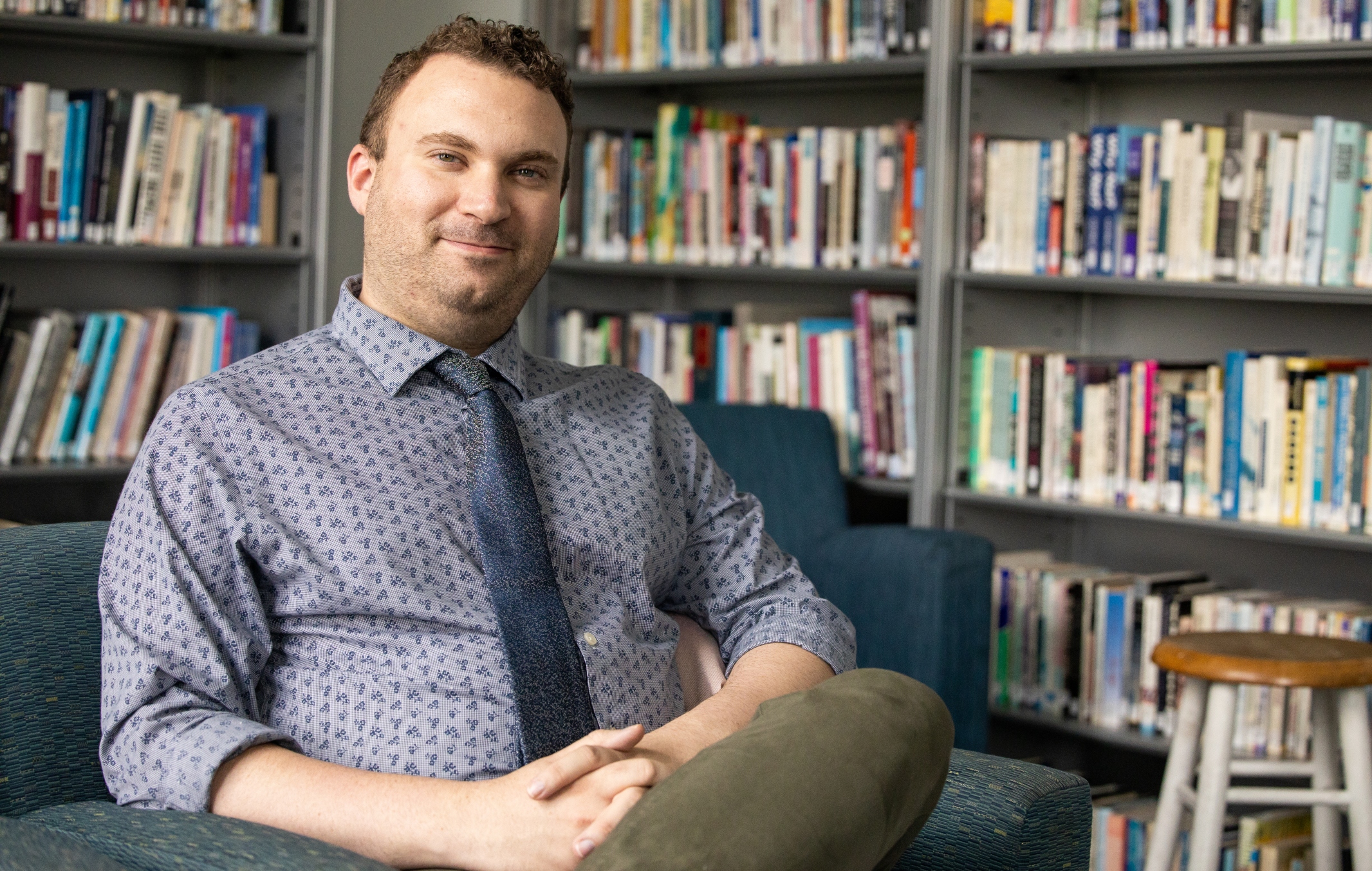When Zach Parker, assistant director LBGTQIA programs and services, completed an academically intense high school career, he decided to take a gap year. He worked at Disney World to pursue his dream to perform on Broadway. But his experience there revealed that he enjoyed storytelling and working with people more than he realized.
“After Disney I went back to school and began to work with stories and storytelling,” Parker says. “That led me to think about LGBTQIA stories and the research into those pieces.”
Parker was active in LGBTQIA organizations while he was in college at Wichita State University. When he started his graduate work, he moved past participation and worked in the center at WSU in addition to teaching the school’s first LGBTQIA literature course.
“I had students tell me, ‘I’ve never seen myself in a course before.’ That was wonderful and exciting for me as a professional.”
One of Parker’s priorities in his current position is focusing on reconnecting students and helping them find community again following the shutdowns of the COVID-19 pandemic.
“Hopefully we are moving toward more of an ‘endemic,’ and we can regroup around making friends, finding community and building resilience together.”
For Parker, part of that regrouping is reengaging students with the Rainbow Lounge in the UMKC Student Union.
“I’m excited to see students together building communities, because I know from experience that those communities will last beyond their four years here. Forming strong relationships creates resiliency for our students that will last past graduation.”
“It’s important to have a space for folks to be able to go to feel like they don't have to perform for others, and that they can really be authentic.” - Zach Parker
Parker recognizes that the ongoing media attention to gender identity and the varying views on recognition and accommodation can be overwhelming.
“It’s exhausting to have your existence and the fibers of your being debated on national television by folks who don't understand your experience, and who might not ever be able to understand your experience,” Parker says. “There's some really good research coming out right now, about the damage that happens to kids, even if a law never passes, of having divisive information on TV and having that debate go on.”
Parker responds to this pressure by creating a space where people feel that they don’t have to perform for others.
“It’s important for folks to have the opportunity to really be authentic. Sometimes that authenticity shows up as being really exhausted or angry. Those reactions are valid for all of us, especially for our students to understand that we have space for them and they're not alone.”

